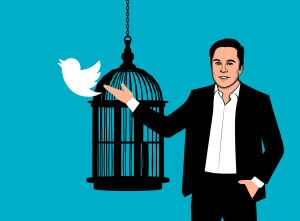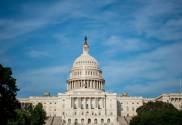
Confusion Continues Over Elon Musk’s Tweet Limits on Twitter
In an effort to combat the extraordinary amount of data scraping that occurs on the website, Twitter’s owner, Elon Musk, has lately imposed restrictions on the number of posts that users are permitted to read in a single day. However, the implementation of these constraints has resulted in confusion amongst users, particularly because throughout the course of the weekend, changes were made to the system and then reverted.
In the beginning, users of Twitter who were not verified and who did not have a paid subscription to the platform were restricted to a maximum of 600 tweets each day. On Saturday evening, Elon Musk extended this limit to 1,000 tweets, but earlier in the day he had set it at 280. It is not yet known if these restrictions will continue to be in effect or whether there will be other changes.
Elon Musk responded to criticisms from users about the features of the website by explaining that the limitations had to be placed because of “EXTREME levels of data scraping.” The process of obtaining data from web platforms, typically on a massive scale, for a variety of reasons including analysis or the training of AI models is referred to as “data scraping.”
Elon Musk has voiced anger over the fact that AI businesses are using Twitter’s data to train their language models. Musk stated that it was “galling” to have to assign additional servers to enable the valuation of these startups. Musk also expressed frustration over the fact that AI companies are utilizing Twitter’s data to train their models. Concerns have been expressed in the past over the widespread usage of platform data for the purpose of training artificial intelligence models. It is currently unknown whether AI businesses have been scraping data from Twitter.
A data scientist by the name of Dr. Rumman Chowdhury, who formerly worked for Twitter, hypothesized that financial concerns were the driving force behind the alterations that Elon Musk imposed. She believed that the limits might be an attempt to save expenses, noting recent litigation against Twitter for non-payment of bills. She cited these lawsuits to support her hypothesis.
An Australian project management company has launched a lawsuit against Twitter in a court in the United States, seeking cumulative payments of almost A$1 million (£534,000) for claimed non-payment of invoices. The case was filed by the company. This action is the latest in a string of similar cases, including one that was brought forth by a former public relations firm and another that was brought forth by an advice firm situated in the United States called Innisfree M&A Inc. These legal disputes bring to light the financial difficulties that Twitter has been experiencing ever since Elon Musk acquired the platform.
Elon Musk has taken steps to cut costs, including laying off half of the employees and introducing a subscription business that sells a “verified” badge for a monthly price. These steps were taken as part of Elon Musk’s endeavor to reduce costs. Nevertheless, these initiatives to cut costs have not been without consequences; advertisers have voiced worries about Elon Musk’s attitude to content control standards, which has led to a decrease in revenue.
Users, particularly journalists who rely on Twitter for live reporting and verification of stories, have experienced a discernible effect as a direct result of the limits imposed on tweets. During times of emergency, some people have expressed their frustration at not being able to get real-time information, such as updates from police departments or news about natural disasters. Because of these constraints, there is reason to be concerned about the usefulness of the platform in terms of providing timely and trustworthy information.
The chief overseas correspondent for The Independent, Bel Trew, turned to Twitter to vent her annoyance with the restrictions placed on the number of characters that may be used in a tweet. She stated that the restrictions left her at a “complete loss” while she was trying to report on Sunday. Journalists and users who rely on Twitter as their primary source of news and information have expressed a similar view in recent years.
The BBC contacted Twitter in an attempt to obtain clarity on the maximum number of characters that can be used in a tweet; nevertheless, an automated response with a poo emoji was provided. Users and journalists have reported feeling an increased level of dissatisfaction as a result of this response, which, when combined with the continuous confusion regarding the limits, has only made the situation worse.
Confusion and doubt have been further fanned by Twitter’s lack of openness and clear information in regard to the tweet restrictions, which has further contributed to the overall state of the situation. The users are left pondering whether the restrictions are a temporary solution, a long-term strategy, or simply a response to the financial challenges that the site is currently experiencing.
Elon Musk’s decision to implement a limit on the number of characters users can use in a tweet has caused users and journalists to express confusion and displeasure. The original limitations were raised, but the fact that there is a lack of clarity and that there are continual modifications has caused many people to question the aim of these measures and how effectively they are working.
Another layer of complication has been added to the situation by the problem of data scraping as well as the concerns highlighted regarding the widespread usage of platform data to train AI models. The financial difficulties that Twitter is currently experiencing, in conjunction with Elon Musk’s efforts to cut costs, contribute further to the uncertainty that surrounds the tweet limit.
Even if users and journalists are waiting for further clarity from Twitter, there is still a real concern regarding the impact that these constraints will have on the platform’s capacity to offer timely and credible information. It is clear that the misunderstanding around Elon Musk’s tweet limits on Twitter is far from being resolved, leaving users and journalists alike in a state of bewilderment about the situation.
First reported on BBC





